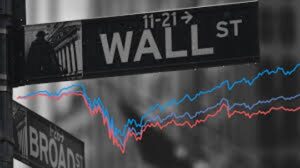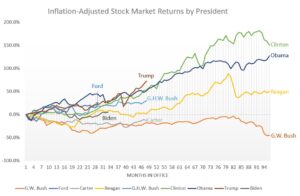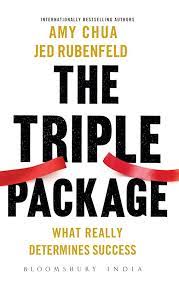
Yes, Restaurant Prices Are Higher – Considerably Higher!
K and I spent a long weekend in LA at the end of last month visiting Numbers One and Two Sons and their families. Dado (yours truly) was happy to grab the checks when we dined together. There were ten of us – six adults, four children. And we had four meals together – one breakfast, one lunch, and two dinners.
Perhaps it’s a function of my forgetfulness, but each check’s bottom line was higher than I expected. With tip, the breakfast came to $400. The lunch came in a $600. And the dinners were more than $1,000 each.
And we are not talking about Michelin Star restaurants. I’d judge the quality as slightly above middling – i.e., two steps above Applebee’s to four steps below Torrisi.
It seems like just 20 years ago, I was paying $10 to $15 a person for breakfast, $15 to $20 a person for lunch, and $25 to $30 a person for dinner. Am I wrong?
Look, I’m not complaining. I can comfortably afford to spend that kind of money at a restaurant. But what about the 200 million working- and middle-class Americans whose combined median income is less than $80,000 a year?
The Biden administration keeps telling us that the economy is strong and inflation has been whipped. It hasn’t dropped to the much eulogized 2%, but it’s in the 3%s – and that’s something to feel good about.
But polls show that most Americans don’t believe it. And for good reason. The cost of dining out has been rising steadily over the last 10 years – at a rate that exceeds both the CPI (Cost Price Index) and the PCE (Personal Consumption Expenditures Price Index), the two official measurements of inflation.
There are two reasons for that.
First, the CPI and the PCE are fake news. They were rigged years ago when creatures at the swamp decided to no longer include the cost of energy and the cost of food in their calculations. And for working- and middle-class Americans, food and energy comprise a much higher percentage of household spending than it does for wealthier Americans.
A second reason is that two-thirds of the cost of running a restaurant is the cost of labor, which has also accelerated greatly since the multi-trillion-dollar COVID giveaway bribe. And that represents two-thirds of the cost of eating in a restaurant, as opposed to eating grocery-store food at home.
For your further amusement, check out this piece by Michael Snyder, the internet’s most prolific producer of End-of-Times predictions, on the inflation history of the Egg McMuffin.
Chart of the Week: What Effect Do Presidents Have Over the US Economy While They Are in Office?
Sean took the time here to reinforce something I’ve been saying for years: You can’t fairly judge a president’s economic policies by what happens with the economy during his term. And the reason for that should be obvious. First, many economic policies (and especially those with the potential to have the largest impact) do not result in change overnight. Most take years – often four to six years – to produce a measurable effect. Second, a president’s ability to create or affect economic policies is limited. Its impact is considerably more narrow and weaker than the power of the Federal Reserve. And even that is smaller than the impact of the billions of independent decisions made by businesses, entrepreneurs, and consumers on a daily basis.
If you understand economics on at least a basic level, you recognize the speciousness of judging a president’s economic policies by the state of the economy during his term. But, as Sean proves below, judging a president’s economic policies by the trajectory of the stock market during his term might be even loonier. Because the stock market responds not just to all the economic, business, and monetary decisions discussed above, but also to the algorithms of computer programs and the psychology of individual investors.
I think there is only one thing a president can do during his term that can have an immediate and substantial effect on the economy and the stock market: Declare war. And that is almost always destructive to both. – MF
I recently made the case that historical data, on multiple fronts, suggest that 2024 will be an “up” year for the stock market.
Probably not great. But also probably not terrible.
In response to this point, I received this reply: “Depends if we still have a dementia patient in the oval office or not.”
Now, I have zero love for Biden. But I would be irresponsibly partisan if I believed anything besides the truth:
The market does not care who the president is.
To prove this point, I found the inflation-adjusted stock returns for each president since 1974.

Over the last 50 years, here are presidential returns from best to worst:
* Clinton: 150.6%
* Obama: 127%
* Trump: 72.9%
* Reagan: 50.1%
* GHW Bush: 30.3%
* Ford: 18.3% (short term)
* Biden: 5.1% (term not yet concluded)
* Carter: -12.8%
* GW Bush: -45.3%
(Again, these are adjusted for inflation so that we get closer to an apples-to-apples comparison, factoring in economic environments.)
But we have to compare their returns to what we should statistically expect.
Here’s what I found: There’s only one person who presided over unusual, outlier returns.
Bill Clinton.
Everyone else? Including George W. Bush? They all land within 1.5 standard deviations from the mean. They’re all “normal returns” that we should reasonably expect if we’re going to invest over four- or eight-year periods.
That means two things:
First off, the president could be good or bad. The president could have amazing economic policies or terrible ones. The president could be demented or not.
I reiterate: The market does not care who the president is.
Secondly, markets only care about three things when it comes to politics: global stability, legislative gridlock, and fiscal stimulus.
“Slick Willie” had those three things in spades.
The economy (and, by extension, the stock market) responds to fiscal policies put in place by Congress, which the president only has marginal control over, and it responds to global economic conditions.
Would we have had such a crazy bull market in the 1990s if the Soviet Bloc hadn’t fallen, opening dozens of new markets at the same time the technology that catalyzes globalization went mainstream? I highly, highly doubt it.
And that’s why Clinton is the only outlier on that list.
The only presidents who come even remotely close to being unusual in terms of inflation-adjusted stock returns – Obama and Trump – also presided over an era of insanely atypical monetary policy. Which proves Mark’s point above in his introduction that the Fed has more power than the president to shape our economic reality.
– Sean MacIntyre
If you want to know how the market tends to perform in an election year in general, click here to check out the one-minute video Sean did on the subject.









